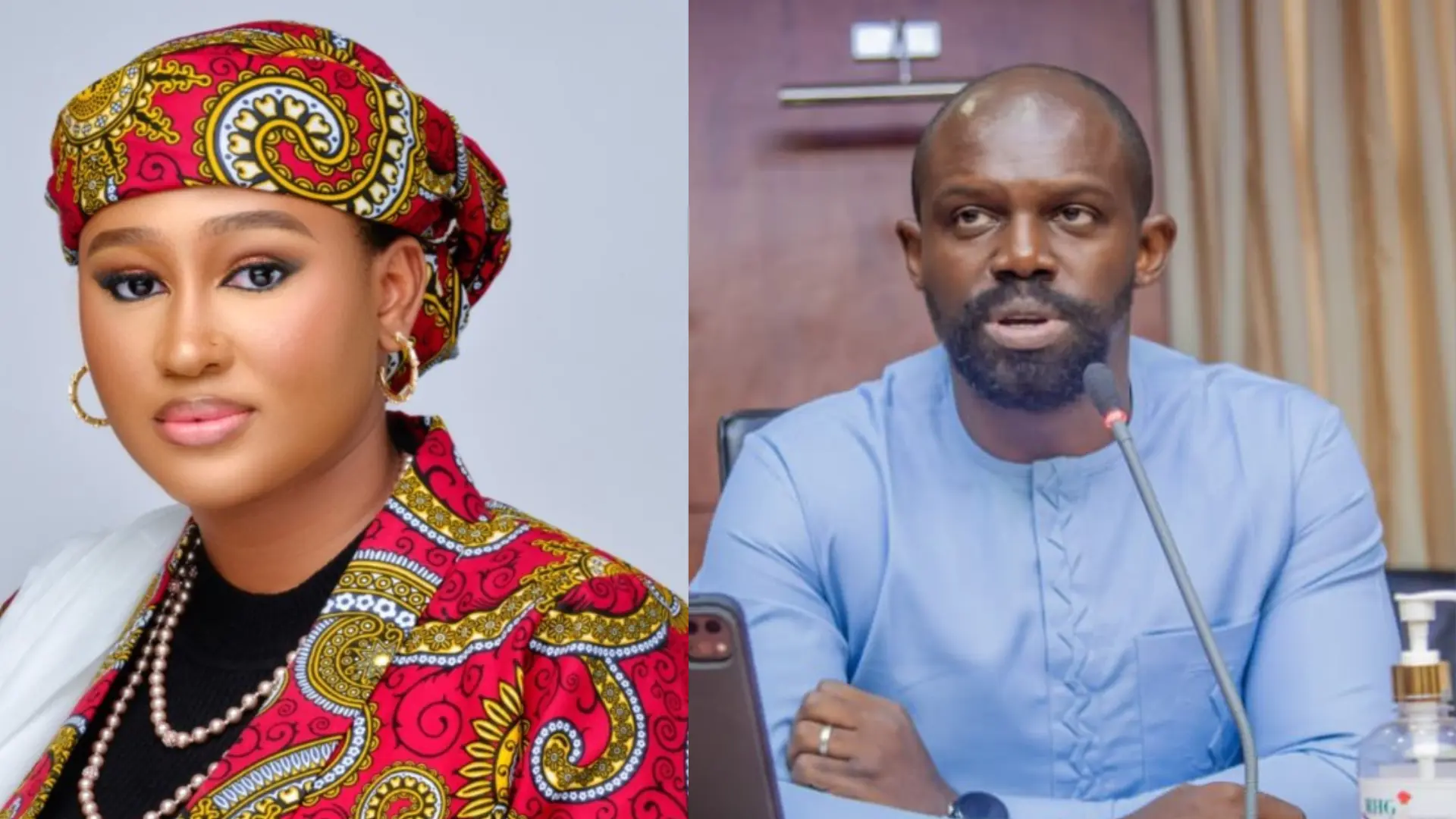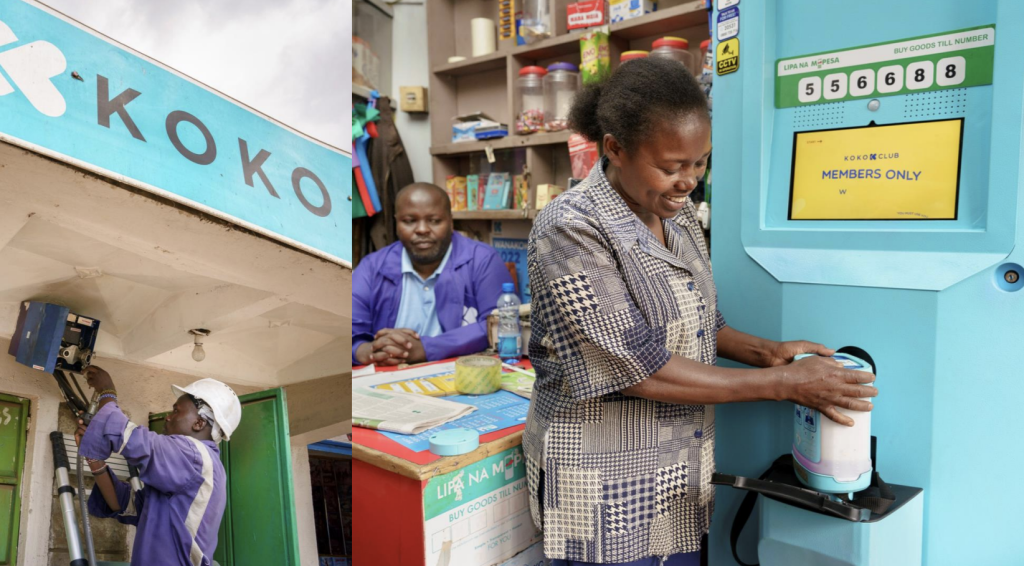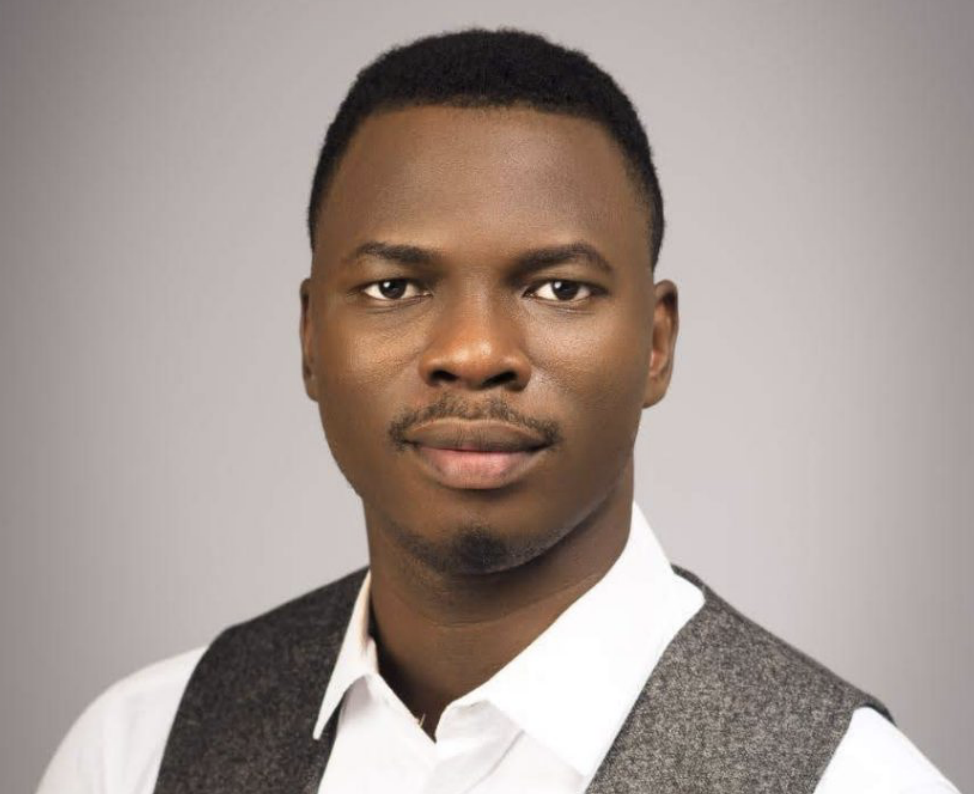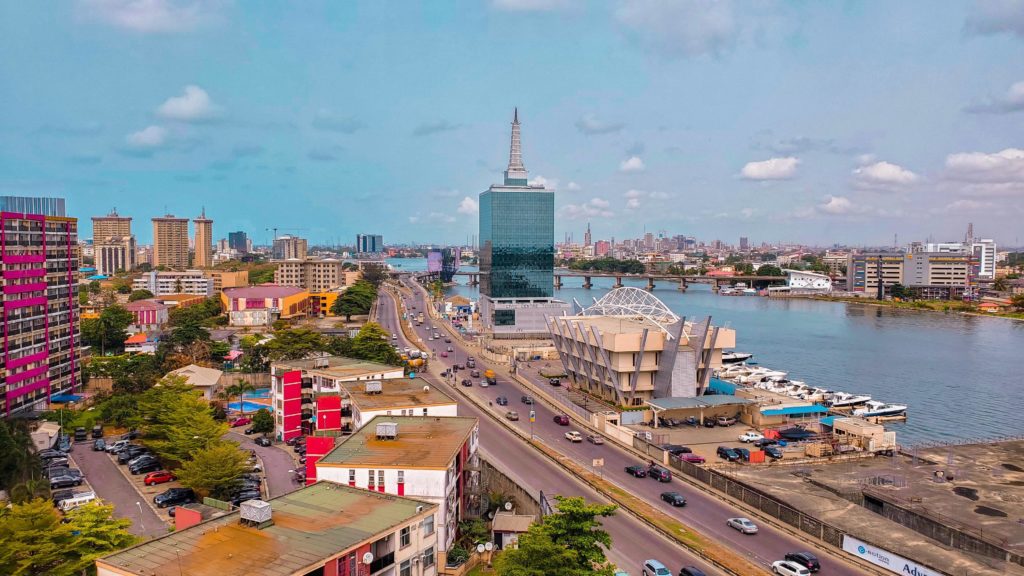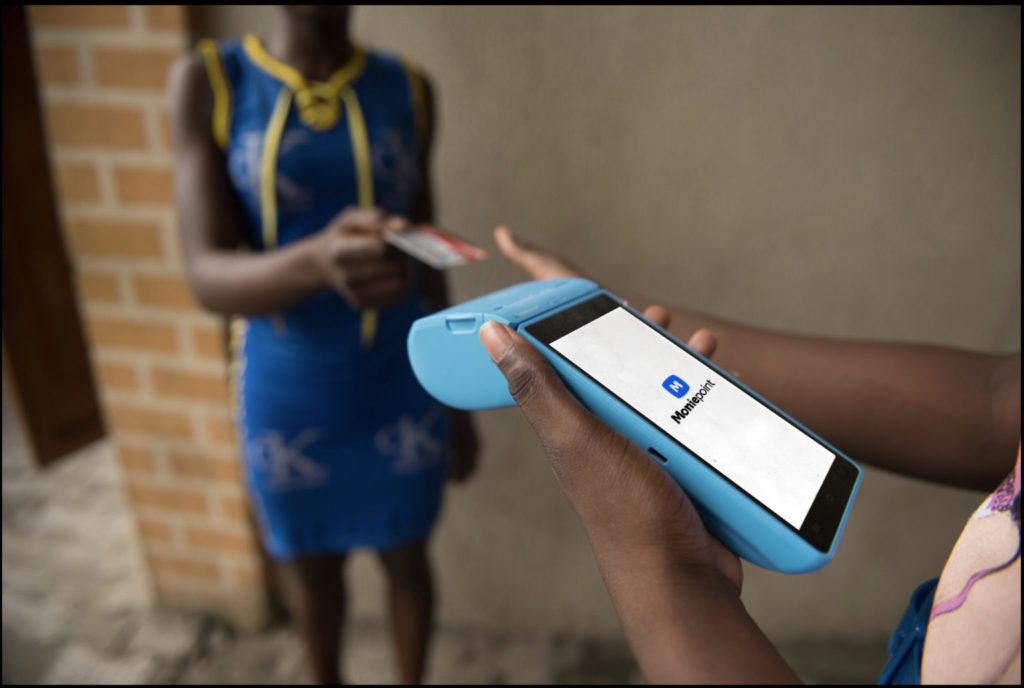Ask An Investor edition featuring Surayyah Ahmad and Sanusi Ismail, general partners at Aduna Capital.
In November, Surayyah Ahmad and Sanusi Ismail announced the launch of Aduna Capital, a $20 million fund targeted at discovering and nurturing early-stage tech founders across Africa, with a keen focus on the northern Nigeria startup ecosystem. For this edition of Ask An Investor, TechCabal spoke to Ahmad and Ismail about why the fund will focus on northern Nigeria, their experience in raising a fund during a VC crunch and more.
Please share a bit of background on your VC journey
Surayyah Ahmad: I’ve been a founder for almost 10 years, having started an e-commerce and fulfilment service company that was based in Abuja. Back then, I honestly didn’t like the support that I could get in the ecosystem probably because there was no ecosystem to start with. So it was quite a struggle raising funds and I ended up raising around $250,000. In 2019, I had to do an M&A deal because the economy wasn’t aligning with the company’s growth. We merged with a company that was trying to enter the same market.
After that, I started another company in the UK. That is when I accidentally got into VC, mostly due to my knowledge of the African market and serving as a venture partner to a couple of VCs in London. But what was clear at the time was that though I was sourcing deals, I couldn’t source deals from my community in northern Nigeria. There were incredible founders but the issue was that they were more technical and could not put a story together to get investors to be interested in their companies.
It struck me that I was working in the wrong environment where I wasn’t making a lot of impact. I was doing TTLabs, in the UK, as a venture partner sourcing deals for VCs. So I decided to repurpose TTLabs into something that could become an accelerator helping founders in northern Nigeria. So we would incubate them for six months, and then put them through our process to getting funded. Now, I think it was like a Pandora’s Box in that the more we did those things, the more we realised that the problem was deeper.
So Sanusi and I as well as a few other friends aligned on solving this problem. We functioned as business angels because we’ve been investing in other companies. So we thought, how about we come together as an angel syndicate and start to invest in these companies ourselves? So what started as an angel investment syndicate got a lot of traction and interest and eventually evolved into the fully-fledged fund Aduna Capital is today.
Sanusi Ismaila: I think that all of my experience has led up to this. Firstly having started my own software company in the past and gone through the struggles, knowing where the shoe pinches at times, understanding what it is like to have a vision and want to get it done but not have people think that it’s possible.
Having seen people from a certain region with brilliant ideas that are built into products, and then seeing them struggle to raise capital, I can relate to the problems we are trying to solve as Aduna Capital. So all of that all of that experience aligns with the firm’s mandate to take some bets that most other firms will not take. We are looking at a region that most other firms are not looking at. We know that there’s a lot of potential in northern Nigeria and we hope that by pioneering investing in the region, eventually, other firms will follow suit.
TC: The fund will have an explicit focus on northern Nigeria startups. Please elaborate on this decision
SA: So part of what we realised was that Lagos has gotten so much traction and investor interest that although there are incredible founders in Lagos, there are also people who can get funding just because they’ve started a company with a lot of noise. I’m sure you’ve seen the recent news on founder dishonesty and whatnot going on in the ecosystem.
Northern Nigeria is different in that it subscribes to what is called the honour system. It’s a very high-trust environment and there are a lot of founders doing some amazing things quietly. Additionally, over 60% of Nigeria’s population currently resides in the north so when people put on their pitch deck that Nigeria is a massive market, the majority of that market resides in the north. But as Nigeria is also predicted to become the fourth largest country in the world by 2050, 70% of our population will recite in the north.
SI: There is a geographical advantage in that the north is surrounded by Francophone countries, Niger, Chad, and Cameroon and a lot of trade happens between these countries. I think as other companies are focused on expanding to Ghana, Kenya, South Africa, etc, we are looking to explore the potential of expanding from northern Nigeria to other Francophone countries. It’s about looking at the other side of opportunities that not everybody is looking at.
So we see the North as a ready market to launch products and expand to other parts of Africa. We want to support outliers that are currently in this region. A lot of them have been bootstrapping and have raised small ticket funds but have not raised anything after that. And it’s not because they’re not bankable companies. When you see their books, you’ll see that they are doing very good numbers and are sustainable as well. It’s just because they don’t know how to raise and that we haven’t built an ecosystem of raising VC funding in northern Nigeria. And that’s what Aduna Capital is trying to change.
What has been your experience raising funds in the current funding winter when LP funds are hard to come by?
SA: It’s an ongoing experience because we have not closed the fund but the good news is that we’ve gotten a fair bit more than half in commitments. One of the strongest things going for us has been our track record. We are both people that have been in this ecosystem for a while and we have shown that given whatever resources we have access to, we can show output and impact that is in several multiples.
For example, our innovation hub bootstrapped all the way and for most of its lifecycle actively turned down grant opportunities. Today, it’s probably one of the biggest sources of technical talent in Nigeria. So people knowing that track record softens the conversation. But it’s also interesting because we’re focusing the fund on an area a lot of people don’t understand. So we get a lot of questions around “Are you sure you can make multiples back?” “How can you assure us?” There is also a bit of hesitance because there are people who are like “Let’s let’s see what you do with your first fund”. To those people, what I always say is this: if this first fund goes the way it’s supposed to, we won’t need your money for a second fund.
SI: We are indeed in a funding winter and I think it’s important to acknowledge that it’s a difficult time to raise. People might ask why we are doing this. We’re doing what we’re doing now because we believe it is the right time to do it. We’re not the only ones who have launched a fund for northern Nigeria. You might have seen another one that was launched right after us. And I think it validates the fact that we’re seeing this opportunity and we think the time is now. And whether it’s the funding winter, whether everybody’s finding it hard to raise from LPs, we think it’s time to do this now.
In terms of the disbursement of the fund, there is also a keen focus on female-founded startups. Can you expound more on that?
SA: We’re not doing a favour to female founders by deciding to fund 50% of them or deciding to allocate 50% of our fund to companies with at least one female founder. Data shows that these startups have done 64% better than companies with all-male founders. So it is a strategic thing to do because they do return more money to funds.
Part of the problem is that a lot of funds like ours that decide to allocate a significant portion to female founders sometimes don’t even find the female founders to fund. That’s where our accelerators and incubators come in to do some of the groundwork to support those female founders who want to start companies.
At the end of the day, female founders are incredible and should be funded but there is a need to address the issue of the lack of these entrepreneurs. We need to put structures in place to support female founders to start companies. I’ve had to let go of a lot of things because I had a baby midway and a lot of female founders have had to let go of their dream because of things like this. So I think it’s not even the question of whether we should find more female founders. It’s about creating the right environment for female founders to be able to start companies and thrive.
SI: If you think about things, from just a product perspective, it doesn’t make sense, at least to me, that half the world isn’t being represented in the products that are being built and backed. And that is sure to cause some problems, whether in the near or distant future. I’m hoping that as we start to address this issue, more people will look into it.
The fund also has a pan-Africa focus. That is always a challenge because Africa has 54 countries with varying cultures and regulatory requirements. How do you plan to traverse through this?
SA: Part of our strategy is to co-invest in rounds. That means for the rest of our deals coming from Africa, we would like to be co-investing with our trusted VC partners. But also, we have an incredible deal flow sourcing system, whereby we’re sourcing some of the best deals from a very wide range of partners across the continent.
We’re not limiting ourselves to the Big Four because our diversification strategy is partly a risk mitigation strategy. We want to ensure that we get the best deals from Africa and what we’re doing is building the network to ensure that we source very good deals. Co-investing with a local VC that is better positioned to carry out some of the due diligence is a vital part of our strategy.
SI: One of the things that we were very clear on from the onset is that in a lot of cases, we won’t be leading rounds. This is useful because if you have local partners, you are better able to address some key issues like market dynamics, regulatory requirements and business development through them.
Throughout the funding crunch, global VCs who have over the years led cheque-writing into Africa have slowed down. Does this present a deal flow opportunity for African VCs like Aduna Capital?
SA: Our thesis is built on the idea that there are opportunities that exist that need to be unlocked but are not being unlocked. Even at the height of what many people call the zero interest rate phenomenon where money was being thrown around, there was still not a lot of investment in northern Nigeria and women startups. We’re basically first movers in unlocking value in some of these opportunities. So in short, it is not about filling in a gap left by retreating investors but rather unlocking opportunities which have traditionally never been explored before.
SI: The opportunity now is to invest in genuine businesses. Any company that’s able to survive in this market is likely sustainable and has a rigid business model. Valuations are more realistic and people are now building for their market which is an advantage to investors.
Anything else you would like to add?
SA: We’re looking for founders who have already built something and have some traction. We also want founders who are looking to build for the local market as well as the African market in general. In terms of teams, we’re looking for a team with at least one experienced founder with industry experience.
Additionally, we are looking for founders who aren’t necessarily building just a software product. So if you’re in manufacturing or processing and incorporating tech, we are interested in backing such ventures. In terms of our ticket sizes, we do pre-seed tickets starting from $50,000. We also do follow-on $200,000 tickets at the seed stage.
SI: We are also looking for businesses building unique products. I’ll give you an example. There’s this fantastic business that I know making animal feed from waste. And it’s it’s the most efficient use of capital and biotechnology I have seen. We are looking for people who see something random happen in nature and are trying to figure out why that thing happens and the way it happens. Businesses like that are typically what we prefer to back. I think beyond payments, there are still a lot of foundational problems that Africa has and I’d like to see more people take stabs at some of the really hard ones.









